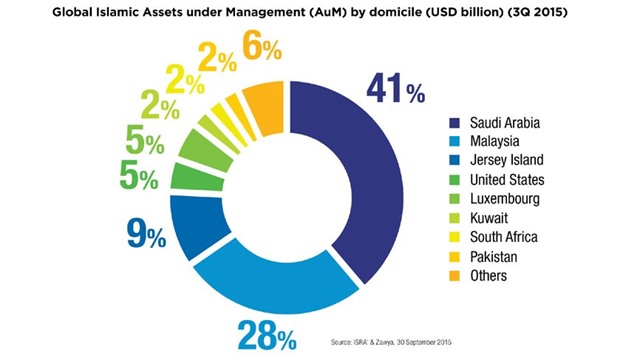A new report issued by the Malaysia Islamic Finance Center, a research unit of Malaysia’s central bank, released on January 15 found that a number of Islamic banking-related developments took place across East Asia in the recent past, indicating “strong growth prospects” for the industry in the region.
For instance, in Japan, one of the main steps taken was the announcement by the financial regulator to relax rules so as to create a “conducive environment” for domestic banks to offer Islamic finance products. As a result, Japan’s largest bank, Bank of Tokyo-Mitsubishi UFJ, is now preparing to offer Shariah-compliant banking products such as deposits, loans and trade finance solutions at its Dubai branch after it received a respective license to operate an Islamic window there. Sumitomo Mitsui Banking Corp, Japan’s second largest bank by assets, has launched an Islamic window in Malaysia. The Japan International Cooperation Agency is also ramping up efforts to expand into Islamic finance for development programmes in Muslim countries.
South Korea, in turn, recently joined Kuala Lumpur-based standardisation organisation Islamic Financial Services Board to launch a domestic learning initiative on Islamic finance. Hong Kong has been working to become a hub for international financial intermediation between China, which particularly looks into sukuk as infrastructure financing option, and the Middle East as a gateway to channel the renminbi into the Islamic banking sector.
In Europe, London emerged as a sizeable Islamic finance hub, together with tax havens such as Luxembourg, Jersey and Ireland. Germany and Russia are also tapping into Islamic finance by mulling sovereign sukuk and banks launching Islamic windows. Adding to that, Germany’s first full-fledged Islamic bank, KT Bank, opened last year in Frankfurt, an institution owned by Kuveyt Turk, the largest Islamic bank in Turkey. In Austria, the fourth largest bank Bawag PSK just opened an Islamic window to offer Shariah-compliant current accounts as a pilot project which could result in more Islamic finance services in the future. In general, European investment companies have become busy buyers of globally issued sukuk and related Islamic investment vehicles.
In Africa, a number of countries are now adapting their regulatory structures with the aim to issue Islamic banking licences by this year and/or issue sukuk on the global market. This includes Morocco and Uganda in terms of licensing, and Nigeria, South Africa, Senegal, Niger, Ivory Coast, Sudan and Kenya in terms of sukuk. However, South Africa currently remains the only African country with notable Islamic fund domiciles, contributing 4% to the total of global Islamic funds as of the third quarter of 2015.
In the Americas, Canada recently made news that it wants to become an Islamic finance hub for North America, pointing at its growing Muslim population, its stable banking system and a favourable regulatory environment. In turn, while the US boasts the largest and most liquid financial market in the world and is currently holding about 5% of global Islamic financial assets, financial institutions remain somehow reluctant to push the market further for geopolitical reasons.
In South America, Brazil is seen to have the biggest potential in Islamic finance, particularly in relation to its robust halal food industry, as well as for the country’s big infrastructure projects of which a large portion are presently in need of further financing to move forward. There is also upcoming demand for Islamic financing in the property development sector. Unfortunately, Brazil has no specific legal framework in place for Islamic finance yet which makes it more risky for foreign investors to enter the sector.
Among other promising countries in terms of Islamic finance in South America is Suriname, which has the highest share of Muslims within its population in South America at around 20% and makes, together with Guyana, one of the only two South American members of the Organisation of Islamic Cooperation. Sukuk financing started in Suriname as early as in 2012, and with the help of Saudi Arabia’s Islamic Development Bank, the country at the northern tip of South America now aims at becoming the Islamic finance hub for the Caribbean Community, or Caricom. Based on those developments, Suriname’s neighbour Guyana, where about 8% of the population are Muslim, is now also mulling to tap Islamic funds to finance infrastructure and spur equity investments to private sector projects.

